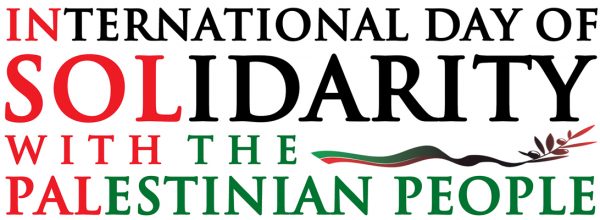The United Nations’ International Day of Solidarity with the Palestinian People stands as a poignant reminder of the enduring quest for peace, justice, and recognition of the Palestinian cause. Observed annually on November 29th, this day serves as a platform to reaffirm global solidarity with the Palestinian people and to renew collective efforts towards a just and lasting solution to the Israeli-Palestinian conflict. It commemorates the adoption of UN General Assembly Resolution 181 in 1947, which sought to partition Palestine into separate Arab and Jewish states, and emphasizes the ongoing struggle for the rights, dignity, and self-determination of Palestinians.
The day not only highlights the historical and humanitarian dimensions of the Palestinian struggle but also underscores the need for tangible actions to address the challenges faced by Palestinians. It encourages dialogue, understanding, and international cooperation to promote peaceful coexistence between Israelis and Palestinians, acknowledging the shared aspirations for a future where both peoples can live in peace, security, and prosperity. Efforts on this day include seminars, symposiums, and cultural events that raise awareness about the plight of Palestinians and advocate for a just resolution to the conflict in accordance with relevant UN resolutions and international law.
However, the International Day of Solidarity with the Palestinian People occurs against a backdrop of persistent challenges, including ongoing tensions, violence, and the humanitarian crisis in the region. Despite numerous diplomatic initiatives and peace-building efforts, achieving a comprehensive and sustainable resolution remains elusive. The observance of this day serves as a call to action for the international community, urging renewed commitment and engagement in finding a peaceful and equitable resolution that ensures the realization of the legitimate rights and aspirations of both Palestinians and Israelis, in accordance with the principles of justice and international law.










